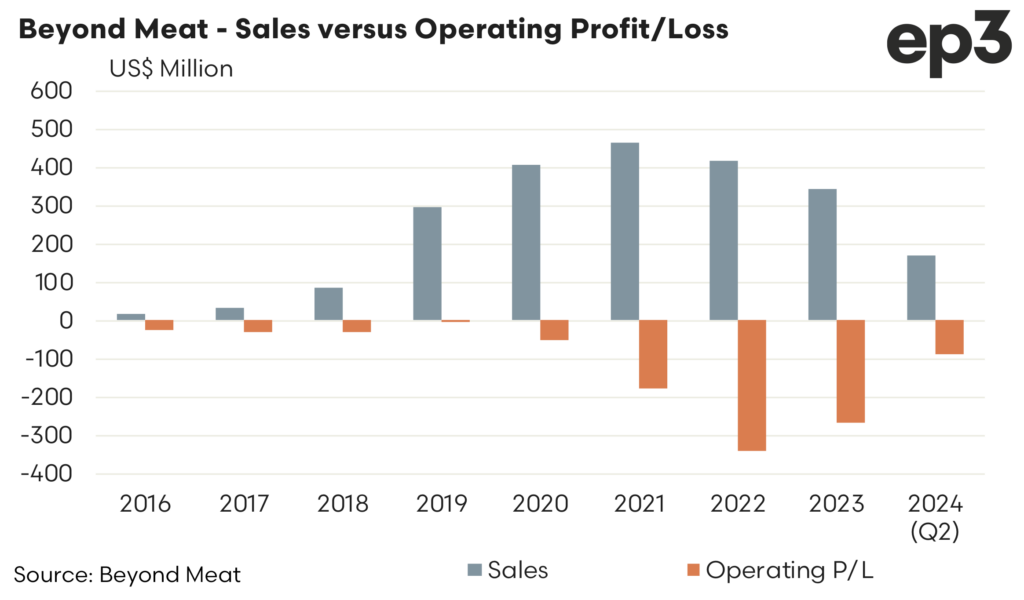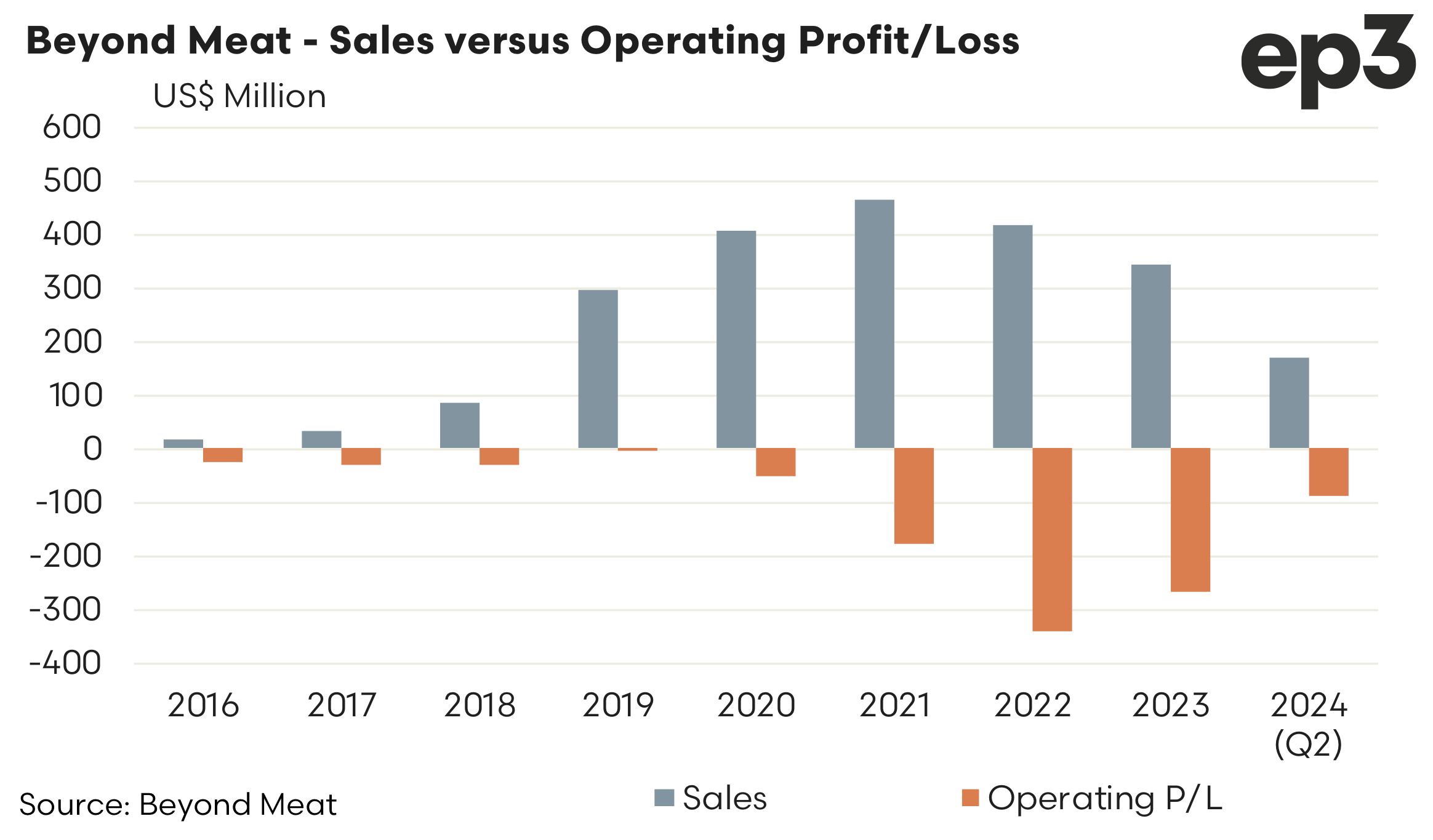Struggle town

Market Morsel
The narrative of plant-based meat alternatives has often been framed as an innovative disruption to traditional livestock farming, driven by aspirations of environmental sustainability and ethical food production. Companies like Beyond Meat promised a revolution in the way we consume protein, aiming to reduce the ecological footprint of animal farming. However, a closer examination, especially in the context of Beyond Meat’s financial performance, reveals a stark deviation from these ambitions.
The rise and subsequent struggles of the plant-based meat industry, particularly highlighted by the journey of Beyond Meat, underscore a turbulent pursuit of a sustainable alternative to traditional livestock products. Initially hailed as a revolutionary shift, the sector aimed to disrupt the meat industry with promises of environmental benefits and innovative food technology. However, a closer look at the performance data and broader market trends reveals a narrative marked by persistent challenges and declining appeal among consumers.
The financial trajectory of Beyond Meat, tells a tale of fleeting success followed by mounting losses. From 2016 onwards, while sales saw a noticeable increase, peaking in 2021, the company’s operating profits failed to follow a similar upward trend. This discrepancy between sales and profit underscores the financial inefficiencies within the company. The substantial and growing losses, especially from 2021 to 2024, highlight operational challenges and perhaps an underlying inefficacy in the business model geared towards mass adoption. Q2, 2024 continues to see operating losses incurred and sales volumes remain in the doldrums.
This financial struggle is not confined to Beyond Meat alone; it reflects a broader disenchantment with plant-based meats across the sector. After initial interest, the market has seen a steady decline in consumer demand over the past three years. This downturn can be attributed to several critical factors including taste, texture, nutrition, and the supposed sustainability of these products.
One critical issue is the higher cost associated with producing plant-based meats. Unlike traditional meat, which benefits from established supply chains and economies of scale, plant-based alternatives often rely on less common ingredients like pea protein, which are more expensive to source and process. The manufacturing process itself is more technologically intensive, contributing further to higher costs. These costs inevitably trickle down to consumers, making plant-based options less attractive in price-sensitive markets.
This factor is one of the most significant hurdles facing the plant-based meat sector. The price discrepancy makes plant-based options less attractive to average consumers, particularly when the economic advantage leans heavily towards traditional meat products. Despite technological advancements, the cost of research, development, and manufacturing of plant-based meats remains prohibitively high, stifling widespread consumer adoption.
Contrary to the initial promises, the reality of plant-based meats in terms of quality and sustainability has been underwhelming. Critics argue that these products do not convincingly replicate the taste and texture of real meat, which alienates not only meat-eaters but also those who might be looking to transition to plant-based diets. The nutritional profile of these products has also been questioned, as many are found to be ultra-processed, packed with additives and preservatives to mimic the flavours and textures of meat, which detracts from their appeal as a healthier alternative.
Moreover, the narrative that plant-based meats are more sustainable has come under scrutiny. While they generally emit fewer greenhouse gases than conventional meat, their sustainability credentials are tarnished by the highly processed nature of these products.
Although marketed as a more sustainable option than livestock farming, the actual ecological footprint of producing plant-based meats, which involves intensive agricultural practices for ingredients like soy and peas, and energy-consuming processing, casts doubt on their sustainability advantage.
Despite the evident challenges and declining consumer interest, certain segments of the investment community and academia continue to champion plant-based meats as a viable alternative. This enthusiasm is often perceived as disconnected from market realities, driven perhaps by ideological leanings rather than practical outcomes. The persistence of such support seems to overlook the clear signals from the market and consumer preferences that question the viability of plant-based meats as a mainstream food source.
The plant-based meat sector, particularly exemplified by Beyond Meat’s financial and market performance, reveals a sector struggling to fulfil its ambitious promises. High production costs, coupled with concerns over taste, texture, nutrition, and sustainability, present formidable challenges. The industry’s decline is a reflection of these unmet expectations, suggesting that without significant improvements in these areas, plant-based meats may remain a niche product.


